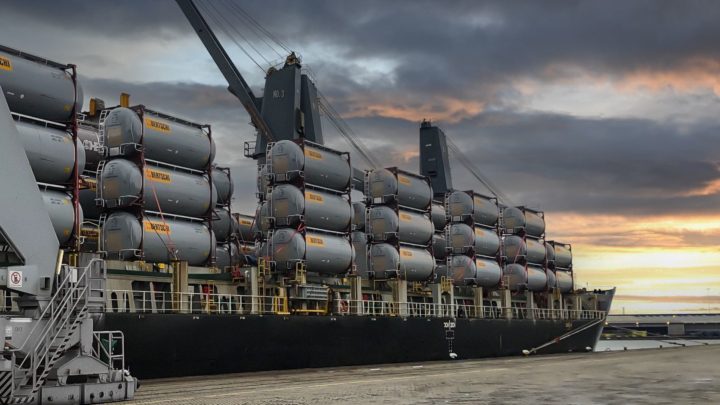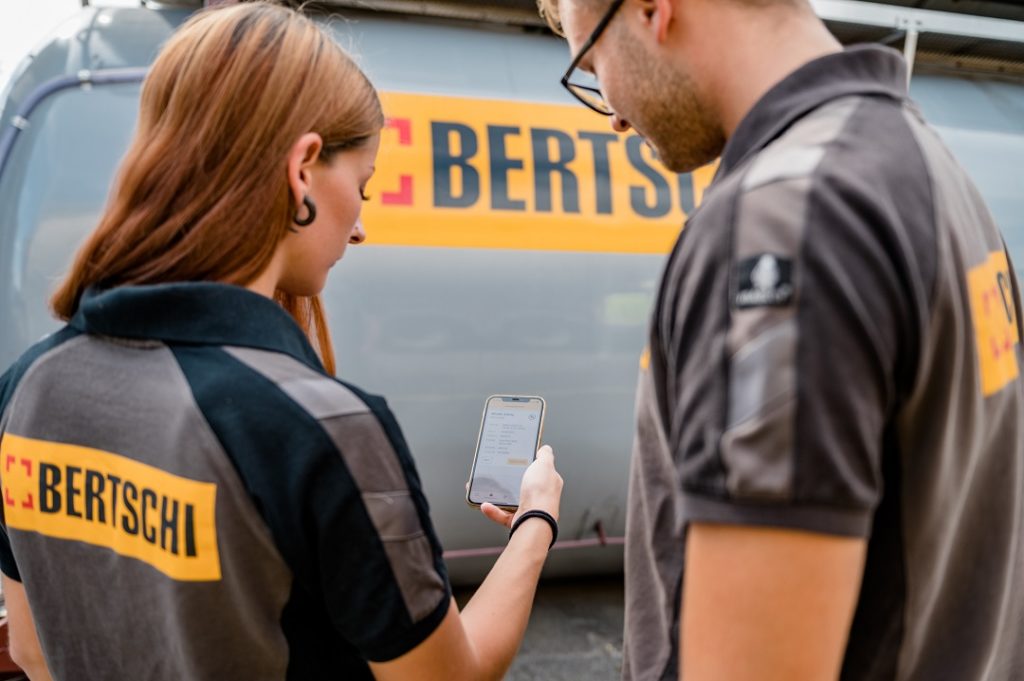
In this challenging environment, Bertschi was able to repeat the one billion Swiss franc sales mark achieved for the first time last year, increasing sales by 8 percent to CHF1.1 billion.
“We are satisfied with our business results. This success is the result of, among other things, the positive development of the global transport concepts initiated in 2012 between Asia, America, Europe and the Middle East,” commented Hans-Jörg Bertschi, executive chairman of Bertschi Group.
The group is focusing on the digital transformation of its processes. An important step was taken with the integration of all systems in European transport, including the integration of customers and service partners. This transformation took place gradually, all the while carefully considering each and every employee.
Further steps are planned for 2023 – including in the global logistics business. Bertschi is developing and implementing its digitalisation concepts and the software required for this is being built independently, with a team of 80 employees, including 50 software developers.
Sustainable logistics
In 2022, Bertschi once again made targeted investments of CHF120 million in expanding sustainable logistics infrastructure, growing the tank and silo container fleet to 42,000 units (+5 percent) and digital transformation.
“By making these investments, we are focusing on shifting transport from the road to more environmentally- and climate-friendly rail,” remarked CEO Jan Arnet. “For example, last year, the doubling of capacity in our intermodal terminal at our site in Terneuzen, The Netherlands, not only enabled an expansion of the range of services we, it also contributes to the EU’s Green Deal.”
With the construction of a new logistics centre for dangerous liquid chemicals in Zhangjiagang (China), close to Shanghai, an important investment was completed in mid-2022 after several years of planning and construction. This storage and filling centre, with a capacity of 25,000 tons of liquid products for storage in tank containers and 25,000 tons of packed goods, as well as automated filling facilities, is now considered one of the safest and most sustainable chemical logistics centres in all of China, according to the group’s international customers.
Following a successful trial operation, the facility received its final operating license in January this year. “Thanks to the logistic hub’s excellent position on the Yangtze River Delta, close to Shanghai, and its direct accessibility by water, this infrastructure is ideally positioned to offer customers in the global tank container business not only transport services, but also sustainable door-to-door supply chains,” explained Hans-Joerg Bertschi.
Outlook
As a result of the high rate of inflation and the associated interest rate increases, the global economy weakened significantly in the second half of 2022. European chemical producers are also suffering from the massive rise in energy prices, which is leading to facilities being closed and production relocated overseas.
Bertschi expects the economic downturn to become more pronounced in 2023, reflected in significantly lower demand for logistics services. At the same time, Bertschi is exposed to the sharp increase in energy costs of rail operators in European intermodal transport, which makes the company’s services significantly more expensive.
“As a company, we are in a very good position that will enable us to survive in this challenging environment, and we are cautiously optimistic that demand will recover in the second half of the year,” stated Arnet.
Despite the challenging outlook, Bertschi is planning to make significant investments in the company’s future in 2023. The focus remains on the sustainability of logistics. In January of this year, work started on the construction of a major rail terminal in Antwerp, the second largest port in Europe.
The terminal also incorporates value-added services. Containers arriving in Antwerp from overseas can be delivered directly by barge to the new rail terminal, stored there and then intermodally distributed by rail across all of Europe. This will be achieved without burdening the road network right up to arrival at the destination terminal.

The successful transfer of more than 90 percent of all transport from road to rail and water routes, enables a 70 percent saving on CO2 emissions compared with direct road transport. “In our corporate strategy, we have set ourselves binding targets and defined a broad action plan to reduce our CO2 emissions further,” explained Hans-Joerg Bertschi.
As part of this strategic objective, in 2022 terminal vehicles in The Netherlands were converted from conventional diesel to run on HVO biodiesel. Hydrated vegetable oil (HVO) is a renewable fuel and generates 90 percent less CO2 emissions than normal diesel.
At the Birrfeld (Switzerland) terminal, the buildings have been fitted with photovoltaic installations to generate electricity. Both these CO2 reduction measures – renewable fuels and solar collectors – will also be used at other Bertschi sites in future.
In 2022, the company introduced the GLEC (Global Logistics Emissions Council) approach, which is a new method for calculating the CO2 emissions of all its transport services in Europe. Using this method, it is now possible to calculate the exact CO2 emissions for each variant of transport and transparently make them available to customers.
Bertschi wants to offer customers different transport options, with the aim of reducing further the carbon footprint. In this context, it is preparing to offer alternatives such as hydrogen- and electric-drive vehicles for pre- and onward carriage by road to rail and water transhipment terminals. An expansion of this GLEC approach to global transport will be initiated in 2023.
